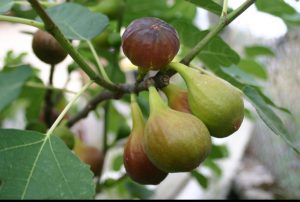
Opportunities and challenges always so hand in hand. When we look into the citrus sector of Pakistan opportunities like diversified climatic conditions and ample availability of natural resources provide the favourable regime for the development of citrus industry. On the other hand problems, like low yield, inferior fruit quality and management are the serious threats our citrus sector is confronting with.
Role of rootstock in citrus is one of the most debatable and discussed issues and its selection is a major consideration under planning any citrus orchard. One thing can be safely said that choosing the right rootstock is fundamental to the success of the orchard.
Role of Root-Stocks:
The rootstock has several major responsibilities,
- It anchors the tree in the ground and supports the up right growth.
- It absorbs water and nutrients for tree growth and fruit production.
- The root system is one part of the tree which stores energy as carbohydrates.
- The rootstock has the potential to provide a level of tolerance to plants against soil born diseases.
- The rootstock allows the scion to adapt to a variety of soil conditions.
In addition to these responsibilities, each rootstock has the characteristics to varying degree such as; vigour, disease tolerance, nematode tolerance, compatibility with scion, drought tolerance, cold hardiness, tolerance to salinity and its effects on scion, fruit size and quality etc etc.
The most important step is to find a root-stock with the maximum desirable characteristics to meet the set of environmental conditions where the tree is to be grown. It means a root-stock considered best for a certain variety and environmental conditions may not be a best choice for some other variety and environmental regime.
Characteristics of Some Important Root-Stocks:
Sour Orange: Citrus aurantium
Sour orange is well known for its resistance to gummosis. It is batter tolerant to salts. It is well suited for heavy moist soils. It has a deep, well distributed root system because of which it endures drought. The threat of tristiza is one of the major limiting factor for its use, however, it has been reported that Palestine sour orange is tolerant is Tristiza virus and a strain of sour orange showing tolerance to tristiza has also been reported from Australia. It gives good yield and quality fruit; however, the size of fruit on sour orange is smaller with thin and smooth skin.
Trifoliate Orange: Poncirus trifoliata
Amongst all the citrus rootstocks in use, trifoliate orange is the hardiest and imparts cold hardiness to the scion variety. It is not suitable for dry or calcareous soils. It thrives well in sandy loam soils with good moisture conditions and organic matter. Trifoliates have good, deep root system with abundant fibrous roots. Fruit is of fine quality with higher acidity and sugar contents than on Sour Orange rootstock but have a tendency to granulate. Trifoliate promotes the disappearance of bitterness from fruit with advancing maturity.
Rough Lemon: Citrus jambheri
After sour orange, Rough lemon is the most widely used rootstock in the world. This stock is sensitive to cold. It has good adaptability to light sandy soils. It is not suitable for wet soils and poorly drained soils. It is more tolerant to salts than sweet oranges. The endurance to gummosis varies from variety to variety. Some oranges on Rough Lemons stock develop an incompatible bud union as Mosambi and Blood Red.
Cleopatra Mandarin: Citrus reshni
This rootstock possesses most of the qualities of sour orange rootstock, particularly having resistance to gummosis. It is moderately cold tolerant. Trees on this root stock are hardy. It thrives well on heavy soils. It is tolerant to quick decline. Oranges and grape fruits budded on it show tolerance to tristiza. It develops a good root system. It gives a good yield of high quality fruit although the fruit size is some what smaller.
Troyer Citrange: Citrus sinensis X Poncirus trifolita
It has inherited good quality characters of both parents. It is highly resistant to gummosis and tolerant to quick decline. Trees on Troyer citrange are precocious and prolific with large sized fruit of excellent quality. It is more cold resistant than sour orange. Oranges and Grapefruits budded on Troyer citrange have shown good results. Its biggest asset is its ability to grow outstandingly well in old citrus soils.
Swingle Citrumelo: Duncan grapefruit X Trifoliate orange
The hybrid is tolerant to Tristiza and Phytophthora and is moderately tolerant to salts. It has shown satisfactory promise for sweet oranges and grapefruits, Valencia oranges on this stock are more cold hardy than on Rough lemon.
Rangpur Lime: Citrus limonia
Trees on this rootstock are vigorous and prolific with quality produce. It makes a good union with a number of citrus species like sweet oranges, mandarins and pummelos. It is highly resistant to tristeza and performs well in heavy soils. It is susceptible to exocortis. Some of its strains seem to be susceptible to phytophthora.
Recommendations:
- Selection of rootstock should be done according to environmental conditions and scion variety.
- Citranges and trifoliates may be explored and used specially for cooler areas and pothohar region.
- Sour orange and rough lemon are widely used root stocks in Khyber Pakhtoon Khawa respectively but there is much scope and space for other rootstocks to the explored and exploited.
- Palestine sour orange and its Australian strain which are reportedly tolerant to tristiza should be inducted into our citrus sector and exploited for their utilization in Pakistan.
About Authors
Imran Muhammad Siddique*, Dr. Rashad Mukhtar Balal, Dr. Muhammad Adnan Shahid
Horticultural Research Station Sahiwal*
Department of Horticulture, University College of Agriculture, University of Sargodha-40100








